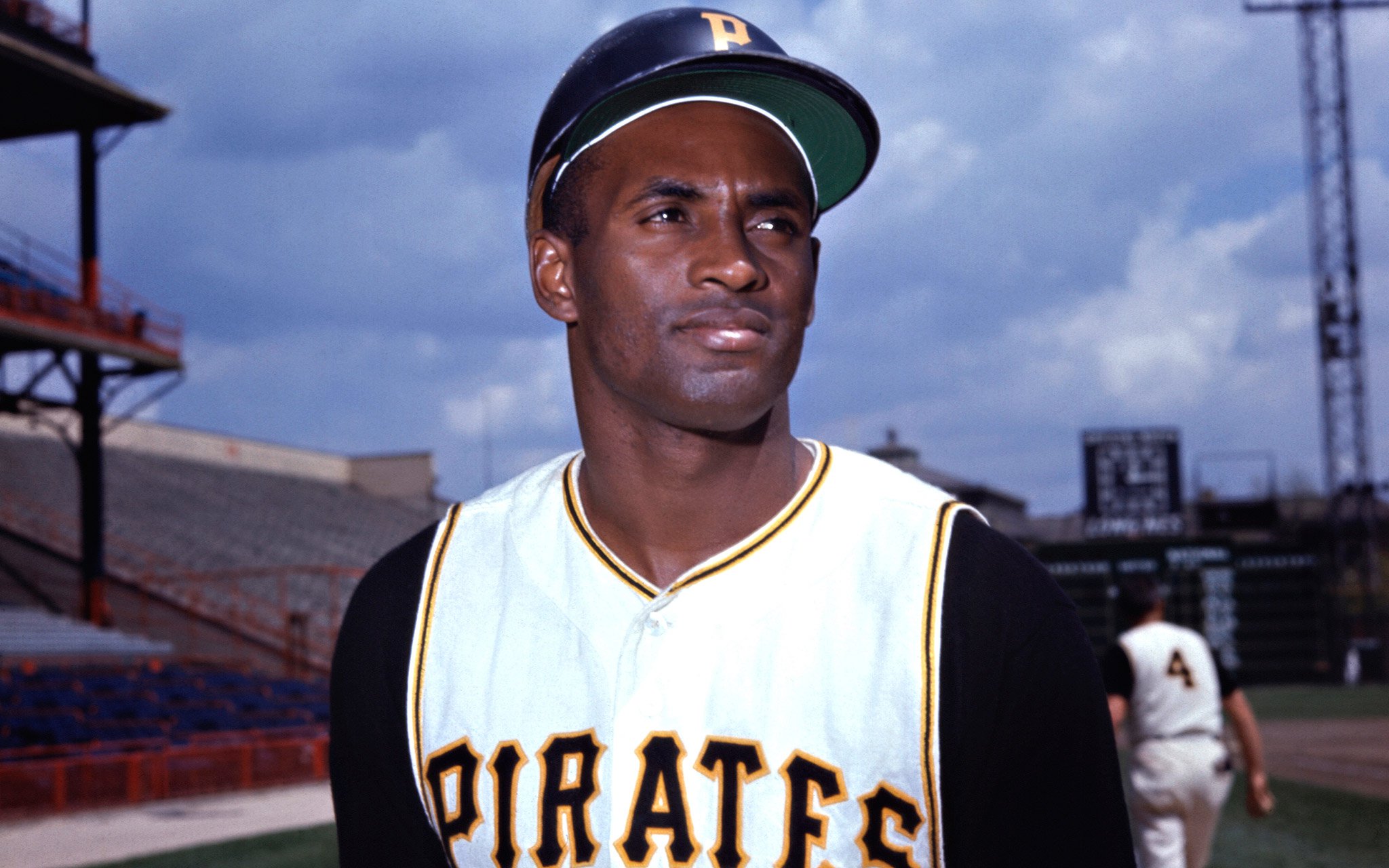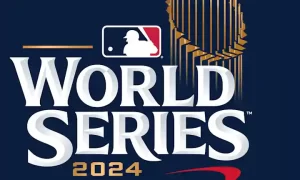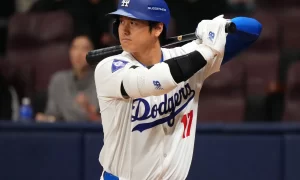Are MVP Voters Racist?

From Baseball’s Most Baffling MVP Ballots, ©2016 Jeremy Lehrman by permission of McFarland & Company, www.mcfarlandpub.com
In 1960, an enraged Roberto Clemente called out what he saw as a racially motivated “injustice” perpetrated by NL MVP voters – not because he didn’t claim the award, but because he placed eighth on the ballot, behind several of his teammates (the award went to Pirates shortstop Dick Groat). It was a slight the sensitive and proud Clemente couldn’t forgive, and he was convinced his Puerto Rican heritage had something to do with his showing on the ballot.
| 1960 | MVP | WAR | G | AB | R | H | 2B | 3B | HR | RBI | SB | BB | BA | OBP | SLG | OPS | OPS+ |
| Groat | 1 | 6.2 | 138 | 573 | 85 | 186 | 26 | 4 | 2 | 50 | 0 | 39 | .325 | .371 | .394 | .766 | 110 |
| Hoak | 2 | 5.4 | 155 | 553 | 97 | 156 | 24 | 9 | 16 | 79 | 3 | 74 | .282 | .366 | .445 | .810 | 120 |
| Clemente | 8 | 3.9 | 144 | 570 | 89 | 179 | 22 | 6 | 16 | 94 | 4 | 39 | .314 | .357 | .458 | .815 | 121 |
One can’t blame the Pittsburgh rightfielder for venting his frustration. The dark-skinned Clemente was treated as a caricature by the press of the day, who often ascribed a Speedy Gonzalez-esque accent to the dignified and intelligent star (to paraphrase: “Aye yaye yaye. He very good pitcher. It hard to heet thee ball”).
While Clemente had a case against certain writers for the ignorant and offensive portrait they painted of him, it’s not clear that Clemente had a case as MVP: Other than his customary fine batting average, 1960 wasn’t a banner year for the great rightfielder. As ranked by WAR, he’s not among the 10 best players in the league. One might argue he deserved better than an eighth-place showing, but the numbers don’t necessarily support that argument.
But Clemente raised a much more important question: Do attitudes toward race influence MVP selections?
—–
So.
Anyone notice that black players aren’t named MVP in the American League?
Granted, that’s not entirely accurate. Black players have captured a total of 12 AL MVP awards in the 69 seasons since Jackie Robinson pioneered integration efforts in 1947 (as compared with 33 MVPs awarded to black players in the National League over the same time period).
More troubling? No black player has been named the American League MVP since 1997; only two black players (Griffey and Mo Vaughn, 1995) have claimed the award in the last 20 years (as compared with seven black players in the NL).
Something seems amiss, no? It seems … odd that since 1947 black players have captured the MVP half the time in the NL, as compared with only 18% of the hardware in the AL.
But before we condemn the AL voters and congratulate the NL’s …
Anyone notice that Hispanic players aren’t named MVP in the National League?
From 1947 to 2016, NL voters have given the award to an Hispanic player only six times – with three of those awards going to Albert Pujols (2005, 2008-09). Over in the America league, Hispanic players have captured 15 total awards, or 22% of the available MVP hardware.
Coincidence? Or something more sinister and sad? Are AL and NL MVP voters biased against specific racial and/or ethnic groups?
—–
Looking over voting patterns since 1949 (when Robinson was the first black player named MVP), clear themes emerge: From 1949-1969, black players claimed 14 of 21 National League awards – and it easily could have been 16 or 17, had voters properly appreciated Willie Mays. Things were very different in the American League: Elston Howard and Frank Robinson are the only African-American players named MVP during this period.
It seems like a damning indictment of voter attitudes, but the facts say otherwise. It’s inarguable that the National League had a near-monopoly on black superstars in the 1950s and 60s (of course, this was because the NL was much more progressive when it came to employing black players). This was the heyday of Campanella and Banks, Mays and McCovey, Aaron and Gibson. The AL simply had no comparable black players. We should also grant that the MVP award, like the league championship, was being passed around the Yankees’ clubhouse during this period. With 14 pennants in 16 years, it’s to be expected that New York was going to be disproportionately represented in the AL MVP voting (and they were, taking nine awards from 1950-1962).
Most Valuable Players, 1949-1969
| National League | American League | |
| 1969 | Willie McCovey | Harmon Killebrew |
| 1968 | Bob Gibson | Denny McLain |
| 1967 | Orlando Cepeda | Carl Yastrzemski |
| 1966 | Roberto Clemente | Frank Robinson |
| 1965 | Willie Mays | Zoilo Versalles |
| 1964 | Ken Boyer | Brooks Robinson |
| 1963 | Sandy Koufax | Elston Howard |
| 1962 | Maury Wills | Mickey Mantle |
| 1961 | Frank Robinson | Roger Maris |
| 1960 | Dick Groat | Roger Maris |
| 1959 | Ernie Banks | Nellie Fox |
| 1958 | Ernie Banks | Jackie Jensen |
| 1957 | Hank Aaron | Mickey Mantle |
| 1956 | Don Newcombe | Mickey Mantle |
| 1955 | Roy Campanella | Yogi Berra |
| 1954 | Willie Mays | Yogi Berra |
| 1953 | Roy Campanella | Al Rosen |
| 1952 | Hank Sauer | Bobby Shantz |
| 1951 | Roy Campanella | Yogi Berra |
| 1950 | Jim Konstanty | Phil Rizzuto |
| 1949 | Jackie Robinson | Ted Williams |
Despite only two MVPs awarded to black players, it’s tough to find a truly terrible American League vote over the time period. Jackson was the league’s best position player 1969, but there’s nothing insidious about the Killebrew award (the ‘Killer’ paced the league in home runs, RBI, walks, and on-base percentage for the division-winning Twins); 1954 MVP runner-up Larry Doby certainly had a case – but voters loved catchers around this time, explaining Berra’s second nod as Most Valuable.
Things started to even out a bit in the 70s, with five black MVPs in the National League (we count the 1979 tie vote), six in the American League:
| National League | American League | ||
| 1979 | Keith Hernandez (tie) Willie Stargell |
Don Baylor | |
| 1978 | Dave Parker | Jim Rice | |
| 1977 | George Foster | Rod Carew | |
| 1976 | Joe Morgan | Thurman Munson | |
| 1975 | Joe Morgan | Fred Lynn | |
| 1974 | Steve Garvey | Jeff Burroughs | |
| 1973 | Pete Rose | Reggie Jackson | |
| 1972 | Johnny Bench | Dick Allen | |
| 1971 | Joe Torre | Vida Blue | |
| 1970 | Johnny Bench | Boog Powell | |
Sure, there were some questionable choices (Willie Stargell was probably the best choice for the NL award in 1971, but he was a poor choice in 1979; Steve Garvey and Jeff Burroughs were both terrible picks in 1974), but again, nothing to suggest anything other than poor judgement (and an infatuation with RBI) on the part of the voters.
From 1980 on, it’s not close: The National League has seen a black player claim the award 13 times, while the AL can only claim five such awards.
The optics seem to get worse when we focus on the last 18 years:
| National League | American League | |
| 2016 | Kris Bryant | Mike Trout |
| 2015 | Bryce Harper | Josh Donaldson |
| 2014 | Clayton Kershaw | Mike Trout |
| 2013 | Andrew McCutchen | Miguel Cabrera |
| 2012 | Buster Posey | Miguel Cabrera |
| 2011 | Ryan Braun | Justin Verlander |
| 2010 | Joey Votto | Josh Hamilton |
| 2009 | Albert Pujols | Joe Mauer |
| 2008 | Albert Pujols | Dustin Pedroia |
| 2007 | Jimmy Rollins | Alex Rodriguez |
| 2006 | Ryan Howard | Justin Morneau |
| 2005 | Albert Pujols | Alex Rodriguez |
| 2004 | Barry Bonds | Vladimir Guerrero |
| 2003 | Barry Bonds | Alex Rodriguez |
| 2002 | Barry Bonds | Miguel Tejada |
| 2001 | Barry Bonds | Ichiro Suzuki |
| 2000 | Jeff Kent | Jason Giambi |
| 1999 | Chipper Jones | Ivan Rodriguez |
| 1998 | Sammy Sosa | Juan Gonzalez |
| 1997 | Larry Walker | Ken Griffey |
Since Griffey’s AL MVP in 1997, the National League has seen the MVP go to African-American players seven times; as mentioned earlier, no African-American player has claimed the award in the American League over the same time period.
At first glance, the discrepancy seems troubling – seven to zero? But the second glance reveals why: Of the seven awards handed out to NL players, Barry Bonds owns four. Take Bonds out of the equation, and the NL count seems less impressive.
And then there are demographic factors at play. Since peaking at nearly 19% of the player population in 1981, the number of African-Americans in baseball has been in decline:
“The percentage of African-Americans held steady between 16% and 19% for a quarter-century (1972-1996) but has since plummeted by more than half. There is seemingly no end to theories as to why this happened, but most of them are speculative… The prevalent opinion seems to be that the cause of the decline in African-Americans is external to major league baseball: that African-Americans are focusing on other sports as youths, either by choice or because of fewer opportunities to play baseball.” – Mark Armour and Daniel R. Levitt, “Baseball Demographics, 1947-2012,” SABR.org.
As of Opening Day 2014, African-Americans comprised only 8.3% of the player population. At the same time, the number of Hispanic players has steadily risen from barely countable in the early 1950s to more than 27% as of 2012. Major League Baseball’s racial composition might go a long way in explaining MVP demographics. According to the respected Pew Research Center:
“In 2012, whites comprised about the same share of the population (63%) as they did in Major League Baseball, according to the most recent comparable data,” wrote Pew’s Jens Manuel Krogstad. “By contrast, Hispanics were overrepresented in baseball, comprising 26.9% of players and 17% of the U.S. population. In 2012, blacks were underrepresented in baseball, making up 7.2% of players and 13% of the nation’s population. Asians made up 1.9% of players in 2012 and 5% of the U.S. population.”
Given baseball’s player demographics from 1947-2015, it’s clear that on an institutional level, race has not played a factor in AL MVP voting: With 18% of MVP awards going to African-American players, the AL vote has essentially aligned with the historical composition of the player population; the NL vote has dramatically exceeded what one would expect given the composition of the player population – and this discrepancy can in large part be explained by the imbalance of great black players between the two leagues in the 1950s-’60s, and the preponderance of multiple winners in the NL. Joe Morgan, Barry Bonds, Roy Campanella, Ernie Banks, and Willie Mays have 16 awards among them; in the AL, only Frank Thomas can claim two awards. This has nothing to do with racial attitudes of MVP voters, and everything to do with player performance (or dumb voting – Griffey should count at least two or possibly three awards in his trophy case).
—–
And what of [Hispanic discrimination]?
Since 1996, when the Hispanic player population first exceeded 20%, Pujols and Sammy Sosa (1998) are the only two Hispanic players named NL MVP; the AL counts six players over the same time period.
What gives? Hispanic players have, on the whole, totaled about 25% of the player population since 1996. It is reasonable to project this player segment to capture about one out of every four MVP awards. Is bias at play?
It would seem not. For the same reasons African American players dominated the National League vote for decades, Hispanic players have been relatively overrepresented in recent AL votes, capturing 50% of available awards since 1996: Alex Rodriguez (2003, 2005, 2007), Juan Gonzalez (1996, 1998), Miguel Cabrera (2012-13) Vladimir Guerrero (2004), Miguel Tejada (2002), and Ivan Rodriguez (1999) have 10 awards among them.
While it’s true that Hispanic players have been underrepresented in the NL vote, it’s simply been a matter of timing. Here, again, is the MVP roll call since 2001:
| National League | American League | |
| 2016 | Kris Bryant | Mike Trout |
| 2015 | Bryce Harper | Josh Donaldson |
| 2014 | Clayton Kershaw | Mike Trout |
| 2013 | Andrew McCutchen | Miguel Cabrera |
| 2012 | Buster Posey | Miguel Cabrera |
| 2011 | Ryan Braun | Justin Verlander |
| 2010 | Joey Votto | Josh Hamilton |
| 2009 | Albert Pujols | Joe Mauer |
| 2008 | Albert Pujols | Dustin Pedroia |
| 2007 | Jimmy Rollins | Alex Rodriguez |
| 2006 | Ryan Howard | Justin Morneau |
| 2005 | Albert Pujols | Alex Rodriguez |
| 2004 | Barry Bonds | Vladimir Guerrero |
| 2003 | Barry Bonds | Alex Rodriguez |
| 2002 | Barry Bonds | Miguel Tejada |
| 2001 | Barry Bonds | Ichiro Suzuki |
Who in the NL are you going to bump off the MVP list?
- Bonds was easily the most productive player in the league during his 2001-2004 run.
- You can certainly make a strong case for Pujols over Howard in 2006, but Howard did hit .313/.425/.659, with a league-leading 58 HR and 149 RBI.
- Jimmy Rollins wasn’t the best choice for the award in 2007; Pujols would have been a better option – as would have David Wright, Chase Utley, or Chipper Jones (with this vote going to Utley).
- Votto is a perfectly fine choice in 2010, even if Pujols was just as good.
- The only legitimate option to Ryan Braun in 2011 is the Dodgers’ Matt Kemp, who is African American.
- The Cardinals’ Yadier Molina was spectacular in 2012; MVP Buster Posey was better.
- Molina was again a legitimate MVP candidate in 2013, but McCutchen was the best all-around player in the league for a Pirates team that shrugged off two decades of mediocrity to claim a post-season berth.
- Kershaw was clearly the league’s most valuable player in 2014; the same is true of Harper in 2015, Bryant in 2016.
We can’t know what lies in the hearts and minds of individual voters, and it would be naive to think that some form of individual bias – whether it be personal animus toward a player, or attitude toward an entire race – has never influenced an MVP ballot. But as a whole, the MVP electorate has been colorblind. While voters en masse have made some terrible choices over the years, race seems to have had nothing to do with it.
———
Jeremy Lehrman is the editor of Plate Coverage and the author of Baseball’s Most Baffling MVP Ballots. He has been a professional speechwriter, copywriter, and editor for 20 years. You can follow him on twitter: @jeremy_lehrman or @plate_coverage
















